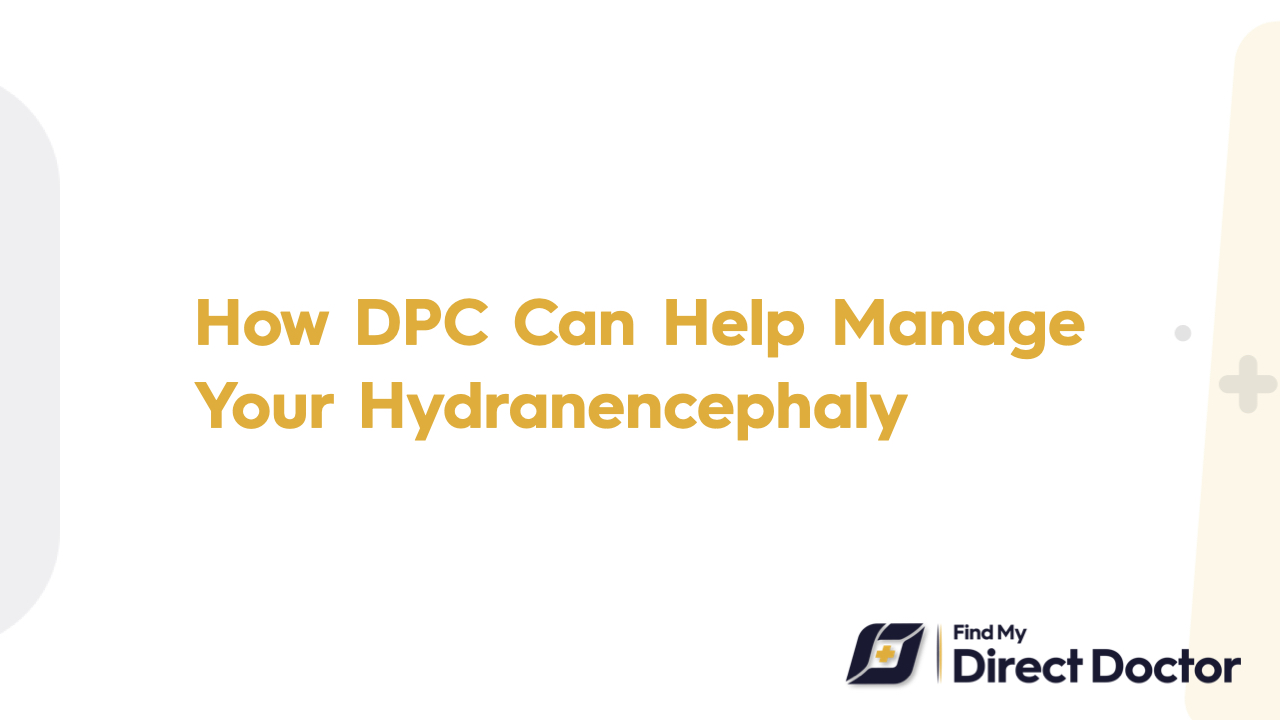



In the rare and severe neurological disorder known as hydranencephaly, fluid-filled sacs, usually cerebrospinal fluid, replace the brain's cerebral hemispheres. This illness is frequently identified in infancy or soon after birth. It arises from a number of causes that interfere with the brain's normal development, such as infections, trauma, or prenatal strokes.

Hydrocephalus can cause an enlarged head, poor feeding, convulsions, and reduced reactivity to external stimuli, among other symptoms of hydranencephaly. Although they may be born with normal reflexes, children with this syndrome grow up to show developmental delays and decreased motor abilities. Imaging tests like CT or MRI scans are commonly used to confirm the diagnosis.
With an emphasis on ongoing and easily accessible care, Direct Primary Care (DPC) provides a patient-centered approach to controlling hydranencephaly. Regular prenatal and postnatal evaluations are essential for early detection, and DPC providers can arrange for diagnostic testing to validate the condition. Additionally, they assist families in navigating the intricacies of the diagnosis.
In order to manage hydranencephaly, supportive treatment and symptom management are required. To build a thorough treatment plan that is suited to the child's need, DPC providers collaborate closely with specialists like neurologists and developmental therapists. A proactive approach to care is ensured by routine monitoring and prompt management for complications such as respiratory problems or convulsions.
The continuity and accessibility of DPC are very beneficial to families dealing with hydranencephaly. Because DPC is individualized, your physician is aware of your child's medical background and unique requirements, guaranteeing effective and considerate care. This constancy aids in the management of long-term care needs.
DPC gives families the time and attention they need to address complicated issues by removing obstacles like hurried visits and restricted appointment availability. Having a direct line of communication with your clinician guarantees timely emergency answers and comprehensive daily care instructions. This method builds trust and lessens the anxiety that comes with managing a complicated medical condition.
Families' emotional and mental well-being is also emphasized by DPC's holistic care concept. It may be very difficult to live with hydranencephaly, and having a committed DPC provider by your side can greatly improve your ability to cope and make decisions.
The foundation of DPC's strategy for treating hydranencephaly is individualized care. Since every child's health is different, a customized strategy that takes into account their emotional, developmental, and medical needs is necessary. To guarantee that every facet of care, from regular monitoring to emergency interventions, is smoothly handled, DPC providers work in tandem with specialists.
Family education is a top priority for DPC practitioners in addition to medical management. They guarantee that parents and other caregivers have the information and tools necessary to control symptoms, avoid problems, and improve the child's quality of life. Physical therapy exercises, food plans, and methods for dealing with sensory issues are a few examples of this advice.
Additionally, DPC helps families make future plans. Your provider assists you in navigating these crucial steps, whether they involve talking about long-term care options, setting up specific equipment, or liaising with therapy facilities and schools. Families dealing with hydranencephaly benefit from DPC's all-encompassing, consistent, and compassionate care that is customized for their particular situation.
Previous Post